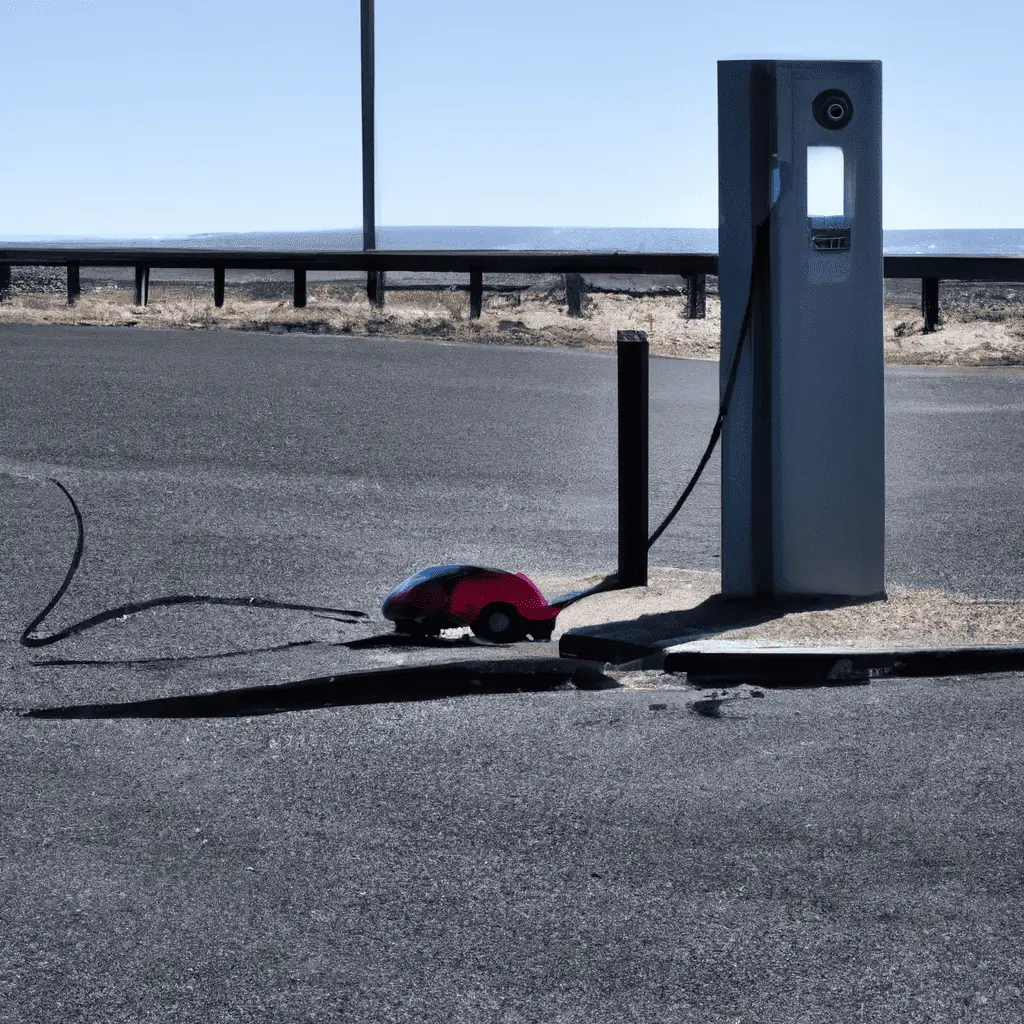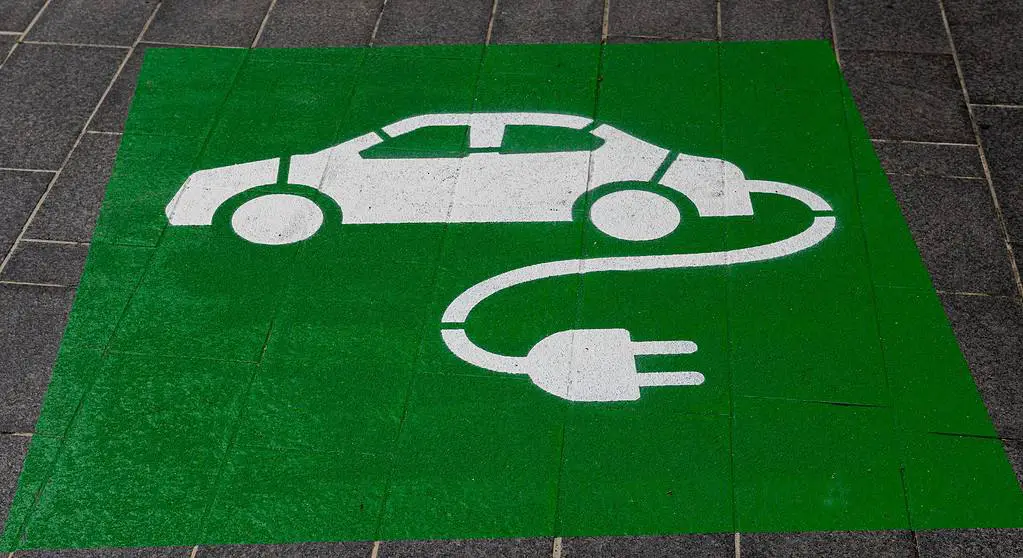Gain a comprehensive understanding of range anxiety in electric vehicles and its implications for both drivers and the broader transportation landscape. As the fear of running out of battery power becomes a prevalent concern for electric vehicle owners, it is crucial to explore the psychological, technological, and infrastructural factors that contribute to this phenomenon. However, advancements in battery technology, charging infrastructure, and a shift in consumer mindset are actively addressing range anxiety. With increasing range capabilities and a growing charging infrastructure, coupled with the undeniable environmental and economic benefits of electric mobility, concerns about range anxiety are being overshadowed. By embracing electric mobility, not only can individuals alleviate their range anxiety, but they can also contribute to a cleaner and more sustainable transportation future.

This image is property of images.pexels.com.
Understanding the Concept of Range Anxiety
Definition of range anxiety
Range anxiety refers to the fear and apprehension that electric vehicle (EV) drivers experience in relation to the battery range of their vehicle. It is the concern that they will run out of battery power and be stranded without a charging station nearby. This anxiety is centered around the limitations of EVs and their ability to travel a certain distance before requiring a recharge.
Factors contributing to range anxiety
Range anxiety is a multi-faceted issue that can be attributed to various factors. Firstly, the limited range of early EV models created a sense of uncertainty among potential buyers. Additionally, the lack of a widespread charging infrastructure made it challenging for drivers to find accessible charging stations, especially during long journeys. The fear of being unable to find a charging station and the time it takes to recharge also contribute to range anxiety. Furthermore, the unfamiliarity and perceived loss of control associated with EVs can exacerbate this anxiety.
Historical Roots of Range Anxiety
Parallel to fueling concerns from early gasoline cars
The concept of range anxiety is not exclusive to electric vehicles; it can be traced back to the early days of gasoline-powered cars. When gasoline cars first emerged, motorists faced similar concerns about finding fueling stations and the risk of running out of fuel during their travels. This parallel highlights the common fears associated with navigating new technologies and the associated infrastructure.
The evolution of the term range anxiety
The term “range anxiety” itself gained prominence with the rise of electric vehicles. As more consumers expressed concerns about the limited range of EVs and the availability of charging stations, the term was coined to encapsulate this specific fear and uncertainty. The popularization of this term and its inclusion in discussions about EVs has helped draw attention to the issue and fostered efforts to address it.
Psychological Impact of Range Anxiety
Anxiety stemming from fear of the unknown
Range anxiety can be psychologically distressing for some EV drivers. The fear of the unknown can trigger feelings of anxiety, as drivers worry about not knowing when or where they might run out of battery power. This fear is rooted in the uncertainty and lack of familiarity surrounding the range capabilities of EVs compared to the well-established fueling infrastructure of gasoline-powered vehicles.
Connection to loss of control
Range anxiety can also stem from a perceived loss of control. Unlike traditional gasoline cars, EV drivers have less flexibility when it comes to refueling options. The reliance on charging stations and the limited range of EVs can make drivers feel constrained and dependent on external factors. This loss of control can further contribute to the psychological impact of range anxiety.
The Role of Current Electric Vehicle Technology in Range Anxiety
Importance of battery technology
Battery technology plays a crucial role in addressing range anxiety. Advancements in battery technology have significantly improved the range capabilities of modern EVs. With the development of more efficient and higher capacity batteries, EVs can now travel longer distances on a single charge. This progress has alleviated some of the concerns associated with range anxiety and provided drivers with increased confidence in their ability to complete their journeys.
How fast-charging infrastructure plays a role
Fast-charging infrastructure has also been instrumental in mitigating range anxiety. The availability of fast-charging stations has reduced the time required for recharging, making it more convenient for EV drivers to replenish their battery levels. The ability to quickly charge the vehicle reduces the likelihood of being stranded without power, thus addressing one of the main sources of range anxiety.
Significance of navigation systems in alleviating fears
Modern EVs equipped with advanced navigation systems can help alleviate range anxiety. These systems often include features such as real-time battery range estimates and recommendations for nearby charging stations. By providing drivers with accurate information about their remaining range and guiding them to available charging stations, navigation systems instill confidence and reduce anxiety about running out of battery power.

This image is property of images.pexels.com.
Modern Electric Vehicles and Range Capabilities
The range of current electric vehicles
Modern EVs have made significant progress in terms of their range capabilities. Many electric car models currently on the market offer ranges of over 200 miles on a single charge. This meets or exceeds the average daily commuting needs of most individuals, reducing the likelihood of running out of battery power during regular travel routines.
How modern EVs are designed to meet daily travelling needs
Electric vehicles are now designed with the specific goal of meeting daily travel requirements. Manufacturers recognize the importance of addressing range anxiety and have thus focused on optimizing the range capabilities of their vehicles. Current EV models take into account factors such as battery capacity, energy efficiency, and aerodynamics to maximize the distance that can be traveled on a single charge. By tailoring their designs to daily commuting needs, EV manufacturers have successfully addressed some of the concerns associated with range anxiety.
The Impact of Charging Infrastructure Expansion
Current state of EV charging infrastructure
The charging infrastructure for electric vehicles has been steadily expanding. In many countries, charging stations can now be found in various locations, including highways, parking lots, and public areas. This growth in infrastructure has significantly improved the accessibility and availability of charging options for EV drivers. As a result, range anxiety is gradually diminishing as drivers have greater confidence in the accessibility of charging infrastructure.
Future projections of charging station availability
Projections for the future indicate that the expansion of charging stations will continue at an accelerated pace. Governments, utility companies, and private entities are investing in the development of charging networks to support the growing demand for EVs. This commitment to expanding the charging infrastructure will further alleviate range anxiety and provide EV drivers with even more convenient and accessible charging options.
How charging station expansion alleviates fears
The expansion of charging stations directly addresses the primary concern of range anxiety by ensuring that drivers have reliable access to charging facilities. With an increasing number of charging stations available, drivers can plan their journeys with confidence, knowing that they will be able to recharge their vehicles as needed. This accessibility reduces the fear of being stranded without a charging station nearby and significantly alleviates range anxiety.

This image is property of images.pexels.com.
Societal Perceptions and Range Anxiety
Changing consumer mindset regarding EVs
Societal perceptions and attitudes towards EVs play a significant role in the prevalence of range anxiety. As more individuals embrace electric mobility and recognize its benefits, the perception of EVs is evolving. The shift towards viewing electric vehicles as a viable alternative to traditional gasoline cars is empowering potential buyers to overcome range anxiety and make the switch to electric transportation.
Effect of societal attitudes on range anxiety prevalence
Negative societal attitudes towards EVs can contribute to the prevalence of range anxiety. Misconceptions about the limitations of EVs and the availability of charging infrastructure can create unnecessary fears for potential buyers. To combat range anxiety, it is essential for society to be adequately informed about the improvements in EV technology and the expanding charging infrastructure. By dispelling misconceptions and promoting accurate information, the prevalence of range anxiety can be reduced.
Weighing Environmental and Economic Benefits Against Range Anxiety
Environmental advantages of EVs
One of the primary benefits of electric vehicles is their positive impact on the environment. EVs produce zero tailpipe emissions, reducing air pollution and improving air quality in urban areas. By transitioning from gasoline-powered vehicles to EVs, individuals can contribute to the reduction of greenhouse gas emissions and combat climate change. The environmental advantages of EVs should be carefully considered when evaluating the importance of range anxiety.
Economic benefits of electric vehicles
Electric vehicles also offer numerous economic benefits. EVs have lower operating costs compared to gasoline cars, as the cost of electricity is typically lower than the cost of gasoline. Additionally, maintenance and service requirements are generally lower for EVs due to the simplified nature of electric drivetrains. Moreover, as the cost of battery technology decreases and economies of scale are realized, the upfront cost of EVs is becoming more competitive with gasoline cars. These economic advantages should be weighed against range anxiety concerns when assessing the overall value of EVs.
Comparing the benefits and drawbacks of EVs
When evaluating electric vehicles, it is essential to consider the broader benefits they offer in relation to the concerns associated with range anxiety. While range anxiety may exist in some capacity, it must be balanced against the environmental and economic advantages of EVs. It is crucial to take into account the long-term benefits of cleaner air, reduced dependence on fossil fuels, and potential cost savings when weighing the drawbacks associated with range anxiety.

Potential Solutions for Addressing Range Anxiety
Continued advancements in battery technology
Continued advancements in battery technology hold the promise of further addressing range anxiety. As battery technology improves, the range capabilities of EVs will continue to increase. Manufacturers are investing in research and development to develop batteries with higher energy densities, faster charging capabilities, and better overall performance. These advancements will undoubtedly contribute to alleviating range anxiety and bolstering confidence in the viability of EVs.
Accelerated expansion of charging infrastructure
The expansion of charging infrastructure must continue at an accelerated pace to alleviate range anxiety. Governments, utility companies, and private organizations should collaborate to create a robust and comprehensive charging network that meets the growing demand for EV charging. By investing in the development of convenient and accessible charging stations, range anxiety will diminish, and the adoption of electric vehicles will accelerate.
Public awareness and education campaigns
Public awareness and education campaigns have a crucial role in addressing range anxiety. Informing the general public about the advancements in EV technology, the expanding charging infrastructure, and the broader benefits of electric mobility will help dispel fears and misconceptions. By promoting accurate and comprehensive information, these campaigns can empower potential EV buyers and reduce the prevalence of range anxiety.
The Future of Electric Vehicles and the Diminishing Concern for Range Anxiety
Predicted improvements in electric vehicle technology
The future of electric vehicles holds great promise in terms of further minimizing range anxiety. Ongoing research and development will continue to advance battery technology, allowing for increased range capabilities and faster charging times. Additionally, improvements in materials and manufacturing processes will make EVs more affordable, making them even more accessible to a broader range of consumers. These predicted improvements will contribute to the diminishing concern for range anxiety as EV technology continues to evolve.
How embracing electric mobility contributes to sustainability
Embracing electric mobility is a crucial step towards a more sustainable transportation landscape. By transitioning to EVs, individuals can reduce their carbon footprint and contribute to the mitigation of climate change. The adoption of electric mobility also reduces noise pollution and reliance on fossil fuels, creating a more sustainable and environmentally conscious society. Embracing electric mobility is not only a solution to range anxiety but also a pathway to a cleaner and greener future.
Forecasted decline in range anxiety as EV adoption increases
As the adoption of electric vehicles continues to increase, range anxiety will naturally decline. With a growing number of EVs on the road and an expanding charging infrastructure, the concerns associated with range anxiety will become less prevalent. Improved battery technology, faster charging capabilities, and public education efforts will also contribute to confidence in EVs. Over time, range anxiety will become a minor concern as the benefits and advantages of electric mobility become more apparent.
In conclusion, range anxiety is a complex issue that stems from psychological, technological, and infrastructural factors. However, advancements in battery technology, charging infrastructure expansion, changes in consumer attitudes, and the environmental and economic benefits of electric mobility are collectively alleviating range anxiety. The expanding charging infrastructure, increasing range capabilities of modern EVs, and the broader benefits of electric mobility should overshadow concerns about range anxiety. As the future of electric vehicles unfolds, range anxiety will continue to diminish, and EV adoption will accelerate, leading to a cleaner and more sustainable transportation landscape.



